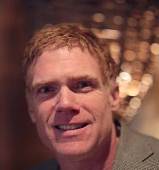 James Sloan is Professor of International Law at the School of Law. After 17 years at the School, he is returning to Toronto to take up a role with the Immigration and Refugee Board of Canada, starting in June. Here he shares his reflections on his career and time at the School.
Professor Sloan trained as a lawyer in Toronto, where he went into a large law firm after qualifying. As the sixth man on a file bill worth $8 million, he soon discovered it was not to his taste. In 1993, after a couple of years at the firm, James decided to take up a place on a Masters programme at the London School of Economics.
James Sloan is Professor of International Law at the School of Law. After 17 years at the School, he is returning to Toronto to take up a role with the Immigration and Refugee Board of Canada, starting in June. Here he shares his reflections on his career and time at the School.
Professor Sloan trained as a lawyer in Toronto, where he went into a large law firm after qualifying. As the sixth man on a file bill worth $8 million, he soon discovered it was not to his taste. In 1993, after a couple of years at the firm, James decided to take up a place on a Masters programme at the London School of Economics.
Following this period of study, he undertook an internship at the UN Office of the High Commissioner for Human Rights. Thereafter he worked as Legal Advisor for the International Criminal Tribunal for the former Yugoslavia in 1995 and 1996. Everything was new – international criminal law was not yet an established field – and the work felt more meaningful than the corporate world James had left behind in Toronto. The office presented particular challenges: the war in former Yugoslavia was ongoing, which meant evidence gathering was more difficult. Neither Serbia nor Croatia recognised the jurisdiction of the court.
James then went on to work for a human rights organisation in Geneva, where he had undertaken consulting work whilst an intern. After 18 months in post, he moved to New York to take up a position at the Lawyers Commission of Human Rights, an advocacy and action organisation (now ‘Human Rights First’). In 1998 he took a position as a Political Advisor to the UN Mission in Bougainville (Papua New Guinea). Whilst the experience was fascinating, the role involved certain stressors. There was a degree of isolation: only half a dozen people were assigned to the project, which was attached to an unarmed Australian presence in the region. For the first few months there was no electricity or running water.
After a year on the mission, James was seeking an alternative position when he was alerted to the role at Glasgow. Having taught both refugee law and international law whilst working in Geneva, the role appealed, though questions such as ‘How long would I stay?’ ‘How well would I fit in as an academic?’, ran through his mind. Little did he know that he would stay for 17 years!
During his time in Glasgow, the university has greatly changed: it is much more international. When he joined the School in 2000, he was one of three staff members from outside the UK. Now, there are some 20 academics from overseas, nearly half the Faculty. The student body has also increased hugely. At the time he joined there were approximately 30 students on the Masters programmes - now there are 200. He remembers tutorials being small enough to hold in his office (colleague Sarah Craig was an early student). Now classes can be up to 30 students in size and are made up of a much more diverse range of nationalities.
So why the move? Returning to Toronto was a big incentive, reflecting James’s ‘homing instinct’. There are certain pluses about Canada, such as the weather. He remembers two summers ago, vacationing at a summer cottage in Ontario in the month of July, receiving an email from a School administrator. The email was to reassure staff that maintenance would shortly be arriving to fix the heating. People had been going home because it was too cold to work in the building! Scottish summers are an uncertain quantity…
The new job will be quasi-judicial, with James employed by the Immigration and Refugee Board of Canada in the Refugee Appeal Division, reviewing previous decisions.
He hopes it will be a fascinating role: the number of refugee claimants has increased in Canada, especially since Trump took power in the US. There will be benefits to undertaking a more practical role such as this, though he will miss the teaching (which he hopes he will be able continue in some form or other). The position also comes with certain pressures and the responsibility of making decisions that affect people's lives in a very real way.
In terms of what he will miss, the teaching and personal connections stand out, though he admits being on the doorstep of beautiful scenery and only a short-haul flight away from Europe’s cities has also been a benefit of living in Glasgow. Equally, Canada has much to recommend it, which he has come to appreciate more fully having spent nearly 25 years away from the country.
We wish James all the best in his new role!